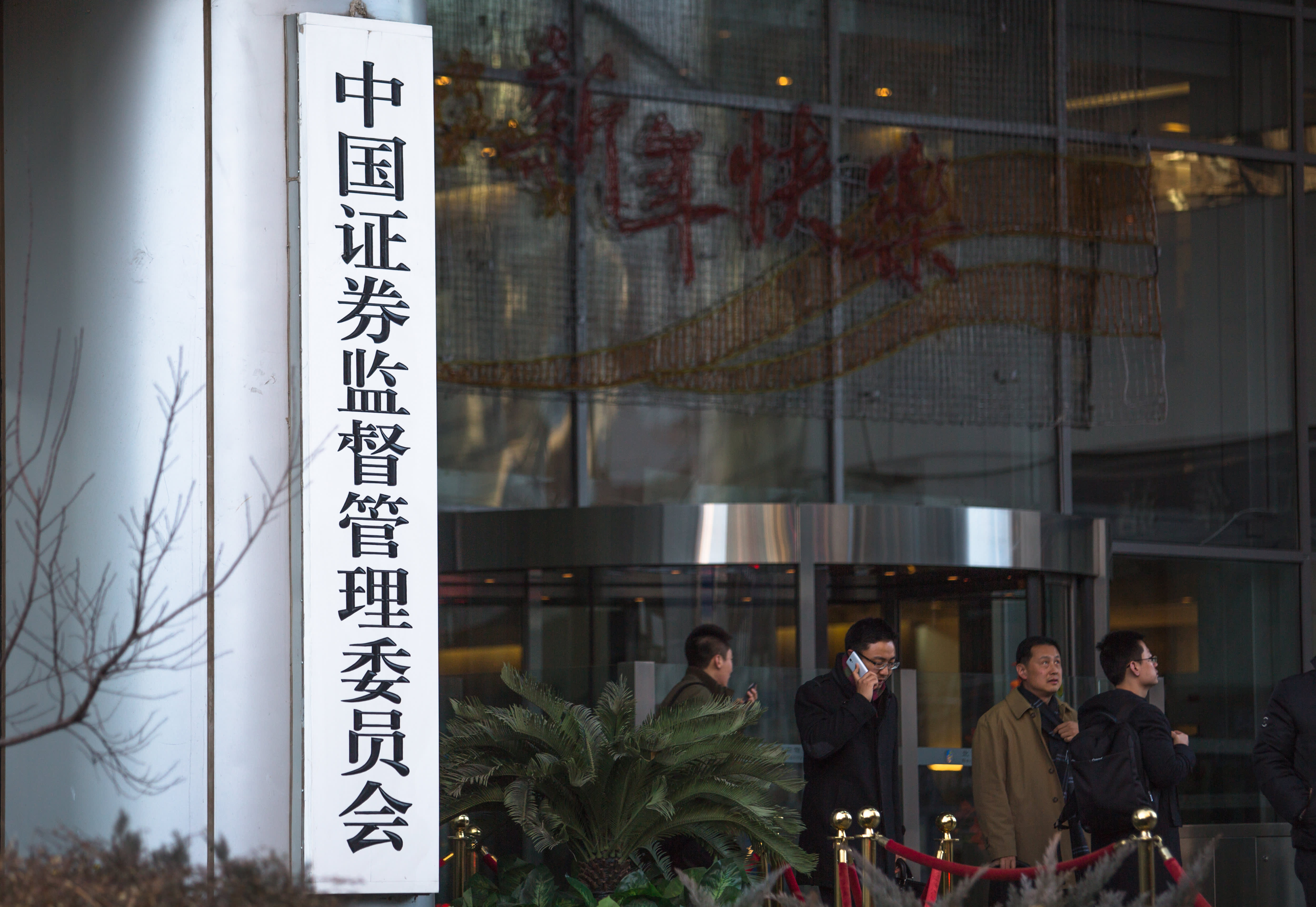The entrance of the China Securities Regulatory Commission (CSRC).
Zhang Peng | LightRocket |Getty Images
In a period fraught with tensions with the U.S., China is trying to show it’s being serious about tackling fraud.
Nasdaq-listed Luckin Coffee said Monday it was cooperating with regulators, following reports of government investigation into the company over recently disclosed financial fraud.
The rare crackdown comes after an update to China’s securities law took effect in March. A new clause said the Chinese government will take legal action against overseas securities issuance and trading activity that hurts domestic investors.
‘Poster child’
The China Securities Regulatory Commission (CSRC) and other authorities have not directly confirmed an investigation into Luckin — China’s challenger to Starbucks. But the commission has been more vocal in denouncing the coffee company’s fraud, and talked up efforts to cooperate with the U.S. Securities and Exchange Commission (SEC).
“The particular timing and particular nature of this case (will) probably become a poster child for China’s attempt to step up or improve its implementation … regarding securities law,“ Zhu Ning, a professor of finance at Tsinghua University, said Tuesday. “The update to the securities law is definitely making it clear that China is trying harder to maintain the order and discipline of the market.”
He said that for some Chinese people, there was an element of national pride in the success of Luckin and the revelation of fraud was humiliating. Increased U.S. scrutiny of Chinese companies will affect their prospects for listing in New York, he said, adding “it’s also hurtful for China for establishing its global leadership image.”
Just over two years old, the Luckin burst onto the market with the aim of being a homegrown rival to Starbucks in China by relying on minimal storefronts, mobile delivery and coupons.
The start-up listed in New York in May 2019. It was the first company since the dotcom bubble from 1999 to 2000 to achieve a $3 billion public valuation less than two years after its launch.
Then on April 2, Luckin announced that an internal investigation found the chief operating officer fabricated sales by about 2.2 billion yuan ($314 million) for much of last year. Shares plunged more than 80% before being halted, and have been suspended since April 7.
Still a long road ahead for China
The company said Monday it was cooperating with China’s State Administration for Market Regulation, and that stores nationwide are operating normally.
Zhu pointed out that what’s needed more is systematic improvements to China’s financial reporting standards, since problems at many local companies have hurt local investors without any punishment.
“(There’s) still a long way for China to go,“ he said. There are “still widespread irregularities in China’s securities market.”
On top of the ongoing trade dispute between the U.S. and China, the global coronavirus pandemic has aggravated geopolitical tensions with controversy over the origin of the Covid-19 disease, the trade and donation of medical supplies, and China’s ability to control the virus’ spread ahead of much of the world.
The virus, which has infected more than 3 million people and killed more than 211,000 worldwide, first emerged late last year in the Chinese city of Wuhan.
Last week, SEC Chairman Jay Clayton and other U.S. regulators issued a statement on how the Public Company Accounting Oversight Board (PCAOB) is still unable to inspect financial paperwork in China, raising concerns about significant risks for U.S. investors.
“The CSRC claims that it has cooperated successfully with the PCAOB, but the PCAOB disagrees; its website lists 241 instances where it was denied access to audit; all but a few are in China,“ said James Early, CEO of investment research firm Stansberry China.
However, Beijing has made some progress. Early noted that the Chinese investigation into Luckin contrasts with the government’s previous inaction about a decade ago, when more than 100 companies attempted to evade scrutiny through a “reverse-merger” process.
Higher barriers for potential IPOs
Several analysts expect more cases of fraud will soon come to light, adding further pressure to Chinese companies that were planning to tap U.S. financial markets.
Chinese listings in the U.S. reached an eight-year high in 2018 with 32 such offerings, according to Renaissance Capital, which sells IPO-focused exchange-traded funds. But that figure has fallen, first with U.S.-China trade tensions and now the coronavirus outbreak.
Luckin’s case has made U.S. investors angry and closed for discussion, said Douglas Menelly, who has worked in the Chinese IPO business for the last several years.
“In my opinion,” he said, “the only step that would provide a modicum of satisfaction would be for CSRC to (1) share with the media and publicize the key findings of the investigation and (2) follow through on an enforcement action against Luckin and the guilty participants.”
Menelly noted that this week, in wake of the Luckin Coffee situation, he saw an average increase of 200% for certain corporate insurance premiums for a Chinese client that had been planning a Nasdaq listing potentially for late next year.
